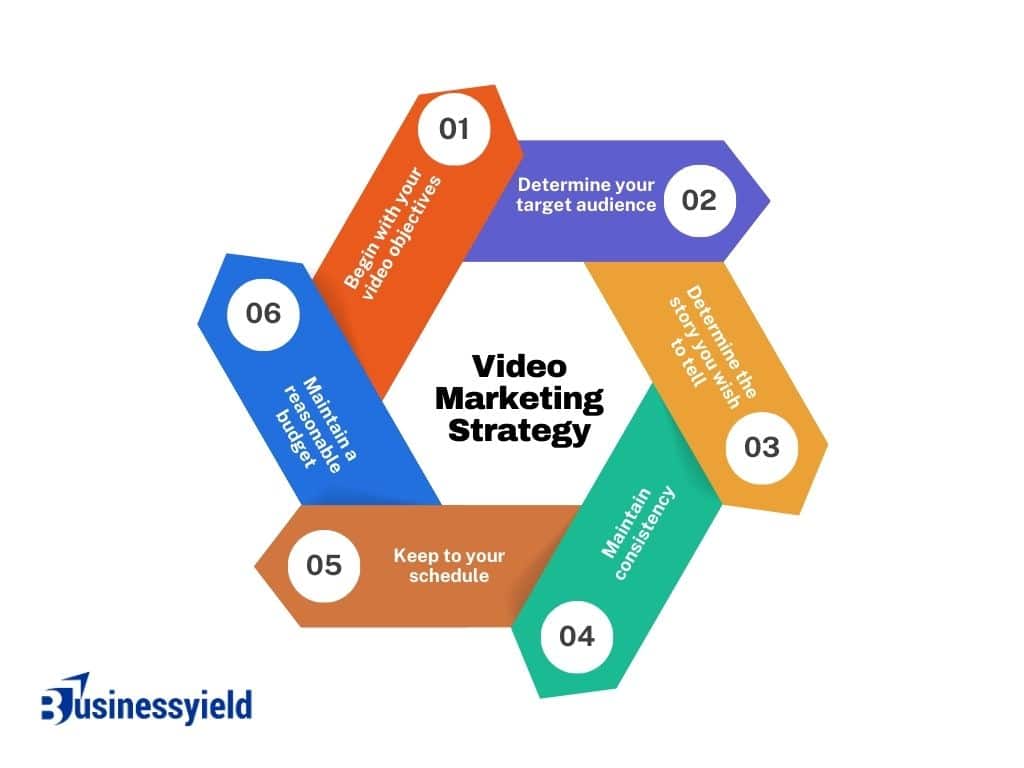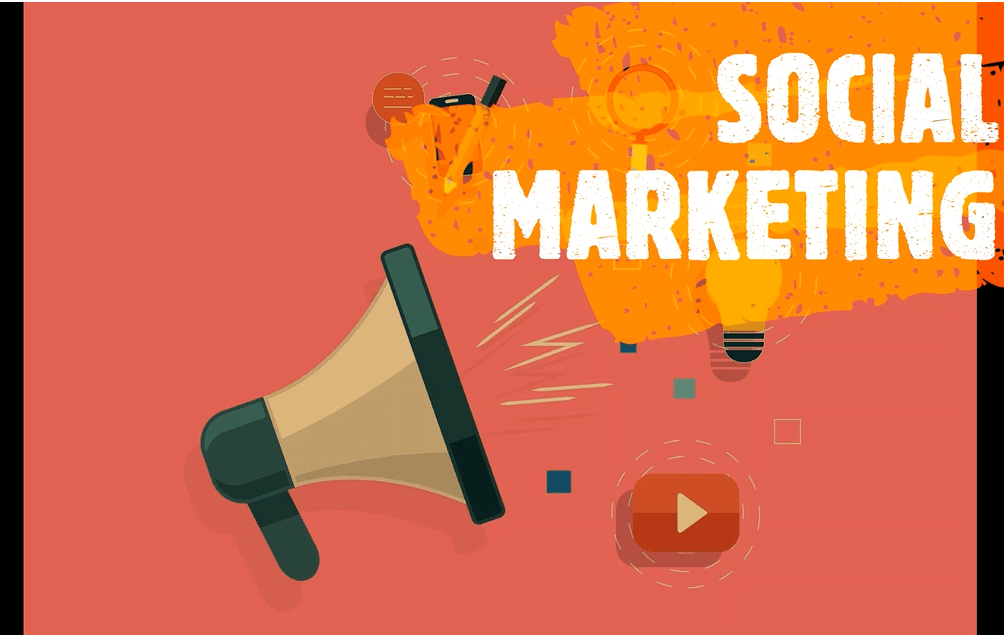You cannot please everyone all of the time. However, as a marketer, it is your responsibility to try to use marketing tools to get everyone interested in what you have to offer.
Fortunately, there are hundreds, if not thousands, of marketing tools to assist you at every stage of the process. From planning to display advertising tools, there is software meant to make your life easier.
It can be daunting to go through all of the available tools, so we developed a list specifically for you. Here, we will look at the best marketing tools for each duty that marketers face today.
What is a Marketing Tool?
Most businesses employ a range of marketing tools to increase their sales. To increase sales, consider using a combination of direct mail, advertising, and social media management. Furthermore, using many marketing tools allows you to focus on different aspects. As a result, while some tools are excellent for increasing sales, others excel at acquiring consumer information.
A marketing tool is anything you may use to create and promote your products or services. There are various options available.
Essentially, you should consider which ones are best suited to your company’s needs. What are the primary goals of your business?
Key Takeaway
- Marketing tools are vital for producing and promoting products and services, as they provide solutions for all stages of the marketing process.
- To optimize strategies and increase engagement, specific tools are available for distinct marketing needs, such as analytics, SEO, social media, influencer marketing, and email campaigns.
- Actionable recommendations, such as A/B testing landing pages and segmenting email lists, show how to use marketing tools more efficiently and achieve greater results.
- Integrating marketing tools like Salesforce with HubSpot can result in a smooth flow of lead data between sales and marketing, allowing for tailored follow-ups.
- The correct marketing tools, paired with smart application and implementation, can drastically transform marketing strategies and drive company objectives.
Different Types of Marketing Tools
Organizations can employ a variety of marketing tools to achieve different goals. Here are some common sorts of marketing tools and examples:
Marketing Analytics Tools
Marketing analytics entails analyzing consumer and industry data to enhance a company’s advertising efforts. Modern businesses typically use digital tools that collect and categorize data automatically, allowing marketing staff to spot new trends in real time. Using a marketing analytics tool, you can learn important information about a company’s customer base, such as demographics and preferences. You can also look into a competitor’s business activity. This method enables you to uncover more leads and optimize marketing strategies for various campaigns.
Here are seven marketing analytics tools to consider:
- Improvado
- Oribi
- MixPanel
- Heap
- Semrush
- Kissmetrics
- Formisimo
Tools For Landing Pages
Landing pages are optimized online forms that a business builds for a specific marketing campaign. Customers frequently access these web pages through external links in a promotional video description or email. Many modern businesses use landing pages to increase brand exposure, generate leads, and optimize sales. You can use a digital tool to develop landing pages with templates and graphic designs that are designed for online engagement.
Here are eight landing page tools to consider:
- OptiMonk
- Unbounce
- ClickFunnels
- Carrd
- ConvertKit
- KickoffLabs
- Swipe Pages.
- GetResponse
Search Engine Optimization (SEO) Tools
The process of search engine optimization (SEO), which is based on algorithms, involves producing website content that ranks higher in significant search engine results pages (SERPs). If a company’s website ranks highly in search engine algorithms, it is more likely to appear on the first few pages of a relevant keyword search. Many digital tools may assist you in researching these keywords and tracking any changes on a single platform, thus increasing overall campaign productivity.
Consider the following seven examples of common SEO tools:
- Ahrefs
- HubSpot
- MozCast
- Keyword Hero
- Seolyzer
- SplitSignal
- Ryte
When our team experienced a large decline in organic traffic, we turned to Ahrefs to review our SEO strategy. We used its site assessment and keyword explorer features to identify and correct neglected SEO weaknesses, resulting in a 30% boost in traffic in three months.
Check out this checklist for your SEO strategy;
Read Also: What Is SEM? Your Crash Course On Search Engine Marketing And Why It Matters
Social media marketing entails leveraging company profiles on social media platforms to increase brand awareness, engage customers, and promote products or services. Social media marketing tools enable you to automate critical processes such as making posts, sharing links, researching tags, and commenting on consumer responses. For example, you could use a social media tool to schedule a single advertisement to appear on many networks at once. These programs can also assist you in locating a company’s target audience, creating reports, and tracking engagement metrics. Here are eight examples of social media tools to consider:
- Hootsuite
- BuzzSumo
- SocialPilot
- Brandwatch
- Social Champ
- Buffer
- eclincher
- Socialert
We increased our social media engagement by 25% using Hootsuite’s advanced scheduling function. The idea was to deliberately arrange content around peak interaction hours determined by Hootsuite’s analytics, rather than just scheduling posts.
You can also check out our social media content calendar template below;
Influencer Marketing Tools
The term “influencer marketing” refers to official product or service endorsements by online celebrities with a large following. These individuals may also represent a specific community or interest area, such as makeup or video games. Influence marketing tools can assist you in identifying online celebrities with a following that matches a company’s target audience. They can also help you develop business relationships with these people and find the most prominent consumers in your industry.
Consider the following six influencer marketing tools:
- BuzzStream
- Upfluence
- NeoReach
- Influencity
- Mavrck
- HYPR
Video Marketing Tools

Video marketing is often defined as sponsored adverts that appear before an online video offered by a streaming provider. Companies may also publish video adverts on their websites and social media profiles. Using specialized video marketing tools may help you edit raw footage and optimize material for both desktop and mobile browsers, thereby increasing viewership. They may also assist you in creating a publishing schedule and identifying appropriate keywords to tag for various streaming platforms.
Here are eight common examples of video marketing tools to consider:
- Vidgeos
- Vimeo
- TubeBuddy
- Hippo Video
- Wistia
- Biteable
- Animaker
- Wideo
Customer Relationship Management Tools
Customer relationship management (CRM) refers to any practices or initiatives that assist organizations in building positive relationships with their customers. Using a CRM solution during a marketing campaign allows you to check critical customer data, such as personal information and purchase history. Many tools also allow you to analyze their purchasing habits and segment them into distinct consumer groups. As a consequence, you’ll be able to better understand which advertising methods might help a company entice its customers. CRM tools can also assist you in handling rewards for customer loyalty programs and measuring interactions.
Consider the following five common CRM tools for marketing:
- Zendesk
- GreenRope
- Nutshell
- SugarCRM
- Intercom
Brand Reputation Management Tools
It is often critical for businesses to create and maintain their brand’s reputation. Brand reputation management entails examining any comments about a firm to better understand consumer perceptions of its product or service. Specialized programs enable you to search for relevant keywords in a database, simplifying the procedure overall. Using a brand reputation management tool, you can see which marketing campaigns have received positive feedback. These efforts improve brand strategies and safeguard businesses from unanticipated public relations (PR) incidents. Here are six brand reputation management tools to consider:
- Brand24
- Reputology
- Brandwatch
- Digimind
- YouScan
- SentiOne
Event Marketing Tools
Event marketing is raising awareness through both online and offline promotional activities. Conferences, seminars, speaker presentations, workshops, trade exhibitions, awards shows, and pop-up shops are all types of promotional events. Specialized tools can help you plan each phase of an event and manage your efforts. They can help you create a registration form, advertise on several platforms, and measure attendance. Using event management tools can help a firm enhance brand awareness and learn more about its target clients.
Here are eight examples of event marketing management tools:
- Bizzabo
- WebEx Events
- Cvent
- Attendease
- Asana
- Judgify
- BrightTALK
- Social Tables
Email Marketing
Email marketing is the practice of advertising a company’s products or services through email advertisements sent to specific customers, including subscribers. Specialized tools can assist you in organizing a company’s email marketing campaigns, developing new messages, and maintaining lists of addresses. They also enable you to schedule emails based on a campaign timeline and track questions from consumers who respond to messages. Email marketing tools can help you optimize your email marketing process and interact more effectively with your customers.
Here are seven examples of email marketing tools:
- Mailchimp
- Sender
- Benchmark Email
- Saleshandy
- Sendinblue
- Respona
- Omnisend
While both Mailchimp and Sendinblue offer strong email marketing capabilities, our deep dive revealed that Sendinblue’s transactional email features and price model offered greater value for our specific customer journey automation needs.
Marketing Graphic Design Tools
Marketing graphic design entails incorporating visual components into promotional content. Infographics, memes, illustrations, and social media banners are a few common examples. Marketing graphic design may also refer to the layout of a webpage as well as other components such as font types and color schemes. Specialized tools can assist you in creating aesthetically pleasing material that appeals to your target audience the best. These programs can also be used to save drawings for numerous projects and share them with colleagues or supervisors.
Here are eight common examples of marketing graphic design tools:
- Canva
- Design Pickle
- Adobe Spark
- Venngage
- Blender
- DesignWizard
- Adobe Color CC
- GIMP
Canva’s recent launch of AI-powered design suggestions highlights its dedication to innovation, making it a must-have tool for marketers looking to expedite content creation.
Despite its tremendous features, Adobe Spark’s user-friendly interface enabled our team to swiftly create visually appealing social media posts without prior graphic design experience. Their extensive online courses were quite useful for speedy learning.
Lead Capture and Conversion Tools
When it comes to your bottom line, you’ll undoubtedly want a few tools for not only attracting prospects to specific marketing campaigns, but also turning those visitors into leads and customers.
Featured lead capture and conversion tools:
- HubSpot free marketing tools.
- HubSpot’s Free Pop-up Form Tool
- Typeform
- OptinMonster
- Sumo
- Convertflow
Lead Generation Tools
If you’re looking to generate demand, you’re generally focused on one goal: transforming anonymous website visitors into contacts with email addresses that you can successfully nurture.
Landing pages are essential for collecting lead information about critical offers and opt-ins.
Featured Lead Generation Resources:
- Unbounce
- Leadpages
- Instapage
- HubSpot’s landing page builder
Website Optimisation and CRO Tools
As marketers, it might feel like we are always making educated guesses about how our website visitors will interact with our content. While we may create a website to bring our user’s attention to a specific location on the page, how do we ever know where their concentration is so that we may improve their experience?
Featured CRO tools:
- Hotjar
- Optimizely
- Lucky Orange
- Google Optimize
- Clicky
Marketing Automation Tools
Automation is nothing new for marketers. Whether you want to save time doing marketing chores or simply cut down on time spent doing daily tasks like saving emails and files to spreadsheets, having a tool that simplifies your life and saves you time is excellent.
Featured marketing automation tools:
- HubSpot Marketing Automation
- Drip
- Marketo
- Omnisend
- Saleforce
Integrating Salesforce with our HubSpot marketing automation resulted in a seamless flow of lead data between sales and marketing, allowing for more tailored and fast follow-ups.
Data Reporting and Analytics Tools
Most tools that automate part of your marketing plan will also include reports that allow you to view and show the results of your campaigns to other personnel in your organization. What if you want to take a more comprehensive look at the health of your marketing?
Featured data reporting and analytics tools:
- Digital Marketing Tuner
- Google Analytics
- Google Search Console
- Databox
- RavenTools
Digital Asset Management Tools
Every marketing team inevitably encounters a situation where everyone on the team shares a ton of files and other materials but there isn’t a single place to store them all.
The organization of any team, let alone a marketing team, is critical. That’s why having a collaborative organization tool will help you stay sane.
Featured digital asset management tools:
- Dropbox
- Google Drive
- Box
- Shift
- Brandfolder
Team Communication and Collaboration Tools
Where would your workday be without accessibility and communication with your colleagues? Probably quite frustrating.
Marketers cannot avoid communication when it comes to aligning with team members and around the firm, thus, having the best internal communication tools is essential every day.
Featured communication and collaboration tools Include:
- Slack
I wouldn’t get any slack if I didn’t make the world aware of this tool.
Slack is a sophisticated messaging platform that allows you and your teams to swiftly communicate without the burden of email. However, it is not only AOL Instant Messenger 2.0.
Slack provides sophisticated features and integrations that allow you to combine all of your other daily tools — such as Trello, Gmail, Giphy, and many others — right where you’re already chatting.
2. Join.Me
3. Zoom
4. Skype
5. Fellow
Project Management Tools
File management and organization are one thing, but how do you handle all of the moving parts of a marketing campaign or project?
There are numerous project management tools available,
- Fellow.app
- Trello
At Businessyield, we utilize Trello on a daily basis to manage our team campaigns and individual task lists. - Brafton
- HubSpot Projects
- TrueNorth
- Workamajig
- Asana
- Airtable
- Wrike
- ProofHub
How to Choose the Best Tool for Digital Marketing
There are no “best” digital marketing tools. There are no one-size-fits-all starter packs. Budget, team size, and level of expertise are just a few factors that affect the best tool for digital marketing.
So, rather than claiming to have the ultimate list, my purpose here is to assist you in finding the best tools for your specific needs. I’ll recommend tools from several categories that you’re probably considering—and maybe some you didn’t even realize you needed.
Tips for Using These Marketing Tools Effectively
#1. Marketing Analytics Tools
Before committing to a marketing analytics solution, compare its data integration capabilities to those of your existing systems. A seamless integration results in more efficient workflows. For one week, see how it accumulates and interprets data across platforms. Does it provide insights that you might otherwise overlook? This stage guarantees that the technology fits and improves your marketing analytics approach.
#2. Landing Pages
Use A/B testing on your landing pages to determine which works best. Create two versions with one important difference, such as the color or placement of the call-to-action button. Monitor conversion rates for a month to decide which version performs best. This direct comparison provides actual statistics to inform your design decisions, resulting in more effective landing pages.
#3. SEO Tools
Use your SEO tool’s keyword research feature to find long-tail keywords that are related to your niche. Then create content around these keywords. Monitor your website’s rating for these keywords for a month to determine how effective your content strategy is at enhancing your SEO.
Using a social networking tool’s scheduling feature, you can schedule posts for different hours and days. Analyze engagement statistics to determine when your audience is most engaged. Adjust your publishing schedule to enhance visibility and conversation.
#5. Influencer Marketing Tools
Begin with a small-scale campaign, including a few influencers to test the waters. Closely monitor engagement and conversion rates. Use these initial efforts as a learning curve to fine-tune your strategy before launching larger-scale initiatives.
#6. Video Marketing Tools
Experiment with various video formats and lengths for your ads. Use analytics to monitor audience engagement, drop-off points, and conversion rates. This data can help you discover what resonates with your target audience, allowing you to customize your content for better outcomes.
#7. Customer Relationship Management (CRM) Tools
Use a tagging system in your CRM to categorize contacts based on their hobbies, purchasing history, and interaction level. Use this segmentation to tailor your marketing communications, enhancing relevance and engagement.
#8. Brand Reputation Management Tools
Using your preferred technology, monitor brand mentions across social platforms and review sites consistently. Respond favorably to both compliments and criticisms. This proactive strategy not only reduces potential negative consequences, but it also improves your brand’s reputation.
#9. Event Marketing Tools
Use your event marketing tools to set up a feedback loop after the event. Send out surveys to guests to get feedback on what worked and didn’t. This feedback is crucial for improving future events and meeting your audience’s expectations.
#10. Email Marketing
Segment your email list according to subscriber activity and preferences. Tailor your emails to these groups to boost open and click-through rates. Test different subject lines and email content to see what gets the best reaction from each category.
#11. Marketing Graphic Design
Maintain a consistent brand theme throughout all of your designs, but don’t be afraid to explore within those parameters. Use A/B testing for visuals in the same way you would for content, especially in high-stakes areas such as landing pages and email marketing.
#12. Lead Capture and Conversion
Test multiple design and question styles to improve the effectiveness of your lead capture forms. To increase completion rates, keep forms as brief as possible and just ask for essential information. Analyze which forms are doing the best and reproduce their structure throughout your website.
Conclusion
With the correct tools, you can streamline your marketing campaigns while also automating a plethora of operations.
Navigating the wide sea of marketing tools can be difficult, but identifying the proper ones has been critical to taking our marketing efforts from excellent to exceptional. It’s not just about the tools you employ but also how you utilize them to connect with your target audience and achieve your business objectives.
- CAMPAIGN MANAGEMENT TOOLS: Free Tools and Application
- Best Email Marketing Campaign Examples (+ Detailed Guide)
- EMAIL MANAGER: Meaning, Software, Free Apps & Manager
- WEBSITE ANALYTICS: Best Tools for Website Analytics & Guide






